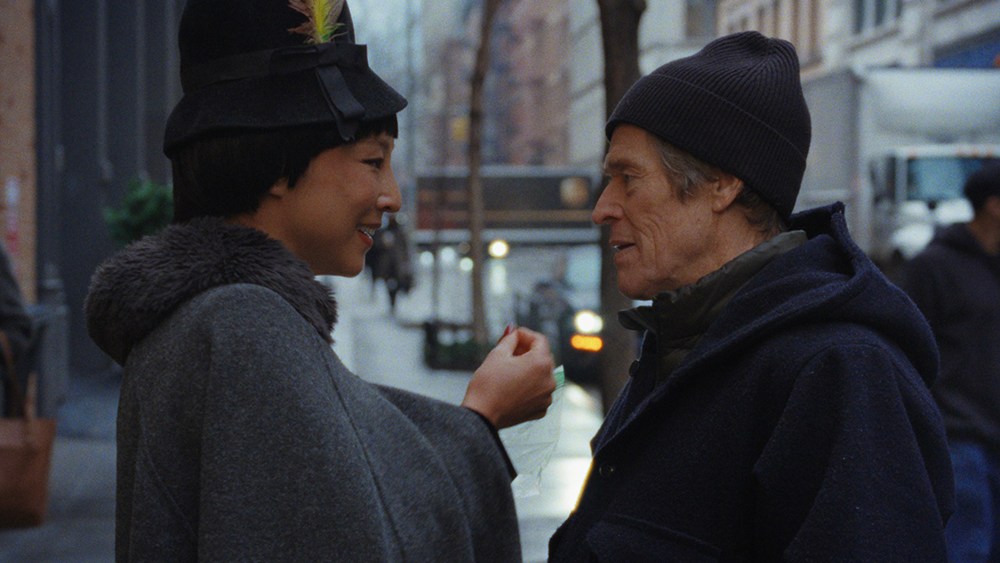For Kent Jones and Samy Burch, nearly everything about making their new Venice-premiering drama, “Late Fame,” was kismet.
The two had never met before discussing the film — an adaptation of Arthur Schnitzler’s 1895 novella about a civil servant who suddenly gains acclaim for his past poetry from a group of up-and-coming writers — but helmer Jones’ name was top of mind for the “May December” scribe. Having seen many of his documentaries and 2018 debut narrative feature “Diane,” Burch felt he was the man for the job.
“I remember thinking, ‘This would be really good for Kent Jones.’ I still have that Notes app in my phone,” Burch tells Variety over Zoom, citing Jones’ “eye for humanity.” The two grabbed a coffee in New York and “just felt this immediate click,” as Burch tells it.
“Truly, the knowledge of all of cinema is in his pocket,” Burch says. “And he’s so New York. He’s lived in so many New Yorks and recognizes these people.”
Burch’s adaptation of “Late Fame” changes the setting from 19th century Vienna to present-day New York City and modernizes the characters, including retired poet Ed Saxberger (played by Willem Dafoe), the glamorous yet mysterious actress Gloria (Greta Lee) and the group of wannabe starving artists who lift Saxberger up as their new hero, led by the generationally wealthy Meyers (Edmund Donovan). NYC itself is also a character in the movie, as the group attempts to recreate the West Village art scene that Saxberger came up in during the ’70s.
Though Jones typically works from his own scripts, he was on board as soon as he read Burch’s adaptation — in fact, he saw himself in it. Jones is something of a New York cinema legend himself, having worked at New Video in Manhattan before beginning his career as a film critic, eventually collaborating on several documentaries with Martin Scorsese and heading up the New York Film Festival from 2013 to 2019.
“I was very involved in the film scene and the avant-garde film world,” Jones tells Variety of his early days in New York. “It’s a world that was there and then it was gone, so I wanted to reflect that. And in the extreme cinephilia world, there’s nothing that anybody likes more than rediscovering a forgotten master.”
Dafoe also came up in New York City’s experimental theater community, helping to found the Wooster Group in the 1970s. Though Jones and Dafoe had crossed paths before, it wasn’t until a stroke of fate on a plane last year that they really got to talking.
“I get on the plane, and who am I seated next to but Willem,” Jones recalls. “We just basically talked for five hours, about everything but ‘Late Fame.’ When he was sent the script, he realized that as we were speaking on the plane, he had a copy of the novella in his backpack. He was in the middle of reading it. It was just amazing.”
Dafoe’s performance as Saxberger is understated yet powerful as viewers see his humble post office worker change when tempted by the possibility of literary glory. “He’s just lightning,” Burch says. “What he brings to this character, there’s such a sensitivity and such a vulnerability.”
Also tempting him is the group’s muse Gloria, who revels in the attention while masking the reality of her life and career. Though Sandra Hüller was initially attached to the project, she had to drop out due to scheduling conflicts — but getting Lee happened seamlessly.
“When it got to Greta it was like, wait a minute, why didn’t we have this discussion six months ago? If I knew that Greta Lee…” Jones says. “And so I said, ‘I’m going to pray that she wants to do it.’ The funny thing was, she immediately jumped on it.”
Of Lee, Jones says: “Everything in her performance counts. She did something extremely difficult because there’s a flamboyance in her performance, but the flamboyance is more the property of her character. So that differentiation was crucial.”
The film culminates in the group of artists throwing a showcase where they get Saxberger to read one of his poems for the first time in decades. Jones and Burch went back and forth on the source material for the poem that he reads, with the director considering asking one of his poet friends to write it. But at the end of the day, the answer was right in front of them.
“Kent was like, ‘Oh, I wrote it. I just wrote a poem.’ And then it’s like that amazing poem,” Burch says. “That’s just so funny to me. I was like, ‘Wait where did you find this, what poem is this?’ And he’s like, ‘Oh, I wrote it today.’ There’s something that’s undeniably moving about it and very relatable in that way.”
“Late Fame” premieres in Venice’s Horizons section on Saturday, marking Burch’s first time on the Lido and Jones’ first in 26 years. Though Jones doesn’t want viewers to necessarily walk away from the film with a specific message, he hopes that the film can help “reframe” their perspective.
“That’s the thing about art,” Jones says. “It’s not the practical value of it, it’s the enlargement of vision that can happen through it.”
Up next, Jones teases that he has written two narrative scripts that are “100% ready to go” — one is another New York-set movie and the other takes place in the Berkshires. But both he and Burch would love to work together again.
“She was just the greatest,” Jones enthuses of Burch. “And oh god, she’s so funny. Every time I get a text from her, she actually makes me laugh.”
